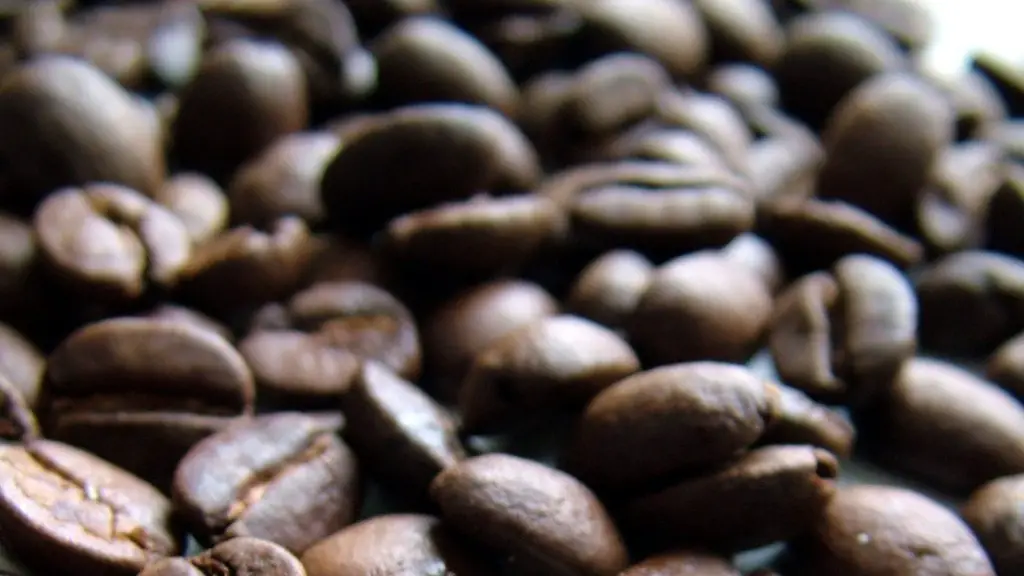Coffee is one of the world’s favourite beverages, but it’s important to understand the potential health implications of drinking coffee on an empty stomach. Its effects vary from person to person, so it’s important to understand the potential health implications, as well as its potential benefits.
Many people believe that drinking coffee on an empty stomach can increase energy and alertness, while others believe it can cause discomfort or even damage the stomach lining. It is important to understand the effects that coffee can have on an empty stomach and whether or not it is a healthy choice.
To investigate this further, we consulted expert opinions on the matter. Dr. David Katz, director of the Yale-Griffin Prevention Research Center, believes that caffeine can increase alertness and provide a short-term energy boost. However, he cautions that too much caffeine can have a negative impact on the stomach, and that consuming coffee on an empty stomach can make it easier for caffeine to pass directly into the bloodstream and overstimulate the body’s central nervous system.
Dr. Stephen Kopecki, a gastroenterologist at the University of Pennsylvania, offers a different perspective. He believes that when consumed in moderation, coffee in and of itself may not be harmful to your stomach and digestive system. However, he cautions that if you regularly drink coffee on an empty stomach, there may be an increased risk of acid reflux, heartburn and other digestive disorders, as the stomach—if not already full—is more likely to experience an influx of acids.
In addition, both experts agree that coffee has a wide variety of compounds that can affect digestion and overall health differently. Dr. Katz stresses the importance of understanding the specific compounds found in coffee, as well as the potential benefits and risks, in order to make informed decisions about coffee consumption. He also recommends drinking coffee in moderation and eating meals throughout the day to keep the stomach from becoming overly acidic.
While coffee itself may be relatively safe to consume on an empty stomach, the potential for coffee to irritate stomach lining or cause acid reflux is a risk to take into consideration when making decisions concerning coffee consumption. For those who wish to minimize their stomach acidity, it is advised to always have a small meal when drinking coffee. Even a simple snack like yogurt or crackers can help reduce stomach acidity as well as provide energy and sustaining fuel for the body.
Strategies to Minimize Stomach Acid When Drinking Coffee
One of the best strategies to minimize stomach acidity when drinking coffee is to pair it with food. Eating a meal before drinking coffee or even having a snack can help to reduce stomach acidity, as well as provide energy and sustaining fuel for the body. Eating a meal with coffee has the added benefit of slowing the absorption of caffeine into the bloodstream, which can help reduce the risk of overstimulation of the body’s central nervous system.
Drinking coffee with meals also gives the body more time to process the caffeine and other compounds in the drink. Eating a meal with coffee can also help reduce the sensation of heartburn or acid reflux, as the food can help to buffer the acidic taste of the drink. As such, it is advised to have some food before drinking coffee to reduce the risk of stomach irritation.
In addition to having food with coffee, it is also a good idea to consume coffee in moderation. Consuming too much coffee in a single sitting can increase the amount of acid that is released in the stomach. As such, it is best to limit your intake of coffee to one or two cups at a time in order to minimize the risk of irritation.
The Health Benefits of Coffee
Despite the potential risks posed by drinking coffee on an empty stomach, there are many potential health benefits to be found in this beloved beverage. Studies have shown that coffee can be beneficial for the heart, as it can help reduce the risk of diabetes and heart disease. Additionally, coffee is a rich source of antioxidants, which can help to protect the body against toxins and oxidative stress.
In addition to being beneficial for the heart, coffee has also been linked to improved brain health, as it can help to reduce the risk of dementia and Alzheimer’s disease. Studies have found that coffee consumption can also boost alertness and energy, which can help to improve cognitive function and productivity.
Finally, studies have also found that coffee consumption can offer protection against certain types of cancer. In particular, regular consumption of coffee has been linked to a reduced risk of liver and colorectal cancer. While it is important to keep in mind the potential risks associated with drinking coffee on an empty stomach, the potential for health benefits should not be overlooked.
The Effects of Coffee on Various Conditions
It is important to consider the potential impact of coffee on other conditions before drinking coffee on an empty stomach. Some of the conditions which may be affected by coffee include hypertension, high cholesterol and heart disease. Coffee can be a stimulant, and, as such, drinking too much coffee on an empty stomach may lead to an increase in blood pressure and the risk of heart attack or stroke.
People who are pregnant or breast-feeding should also be careful when consuming coffee, as it can increase the risk of preterm labor and low birth weight. Additionally, those who are diabetic should be aware that coffee may affect their blood sugar levels, and so it is important to speak to a doctor or nutritionist before making any changes to diet and lifestyle.
Coffee is also known to have an effect on the kidneys, as it can increase the risk of kidney stones. Coffee can also trigger headaches in those who are sensitive to caffeine and can exacerbate the symptoms of anxiety and depression. As such, it is important to pay attention to any unpleasant side effects that may occur after consuming coffee on an empty stomach.
Tips for Drinking Coffee on an Empty Stomach
When drinking coffee on an empty stomach, it is important to do so in moderation and with caution. Drinking too much coffee on an empty stomach can lead to an increase in stomach acidity and may cause other unpleasant side effects such as acid reflux, heartburn or headaches. To minimize these risks, it is important to eat a small meal or snack before drinking coffee.
It is also important to pay attention to the type of coffee being consumed. Caffeinated or decaffeinated coffee can both cause stomach acidity, but additionally, a particular blend of coffee may contain higher levels of compounds that can aggravate the stomach. For example, light/medium roasts are generally considered to be less acidic than dark roasts.
There are also various methods of making coffee that can reduce the impact of the drink on the stomach. Stevia and almond milk can be added to coffee to reduce the acidity level. Additionally, cold-brew and nitrogen-infused coffee have lower levels of acid and can be gentler on the stomach than traditional hot-brewed coffee.
The Bottom Line
The potential health effects of drinking coffee on an empty stomach vary from person to person, and can depend on the type of coffee being consumed as well as the individual’s reaction to caffeine and other compounds found in the beverage. It is important to understand the potential health implications, as well as its potential benefits, in order to make an informed decision.
In general, it is best to avoid drinking too much coffee on an empty stomach and to always pair coffee with food. Eating a small meal or snack before drinking coffee can help to reduce the risk of stomach acidity and reduce the risk of unpleasant side effects. Additionally, paying attention to the type of coffee being consumed and using various methods of making coffee can also reduce the impact of the beverage on the stomach.





